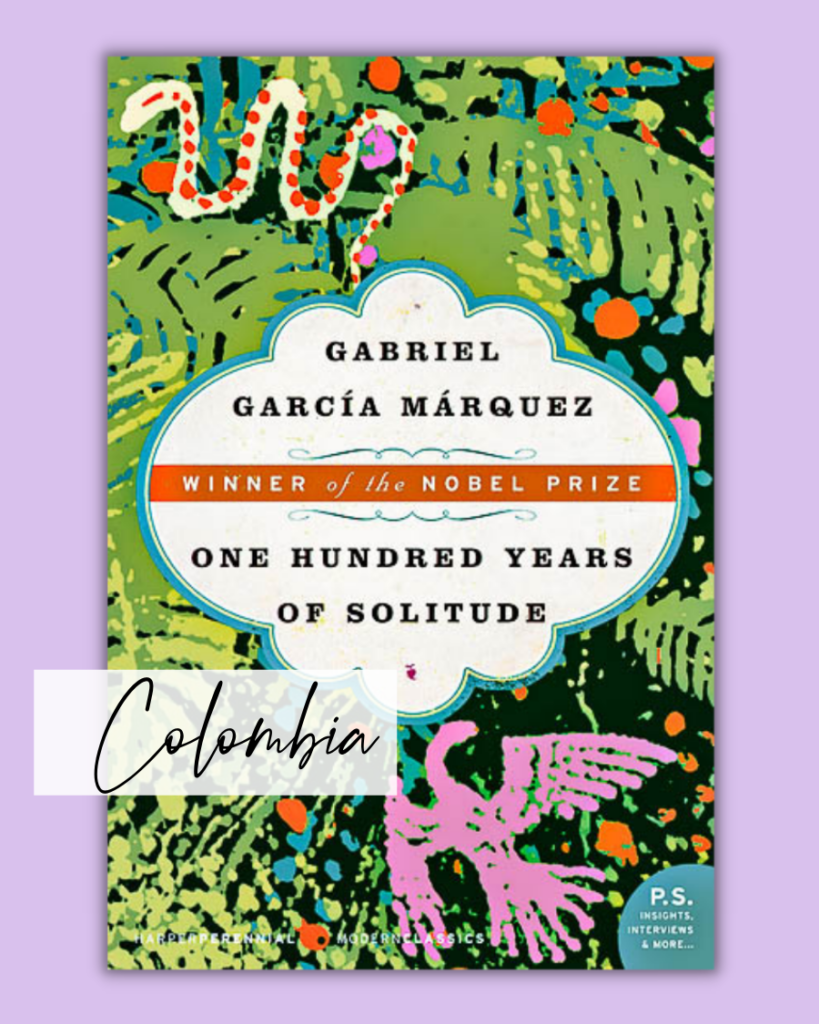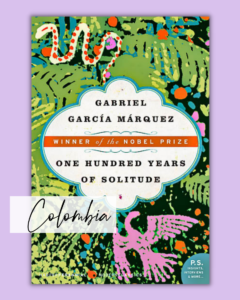If one of the main objectives of world literature is to broaden the mind and introduce you to ways of seeing other than your own, then this is the perfect novel. This multi-generational tale follows one family through the years, all set against a backdrop of modern Latin American history and its intersection with ancient tradition, myth and culture. You’ll need to suspend your disbelief as you read: the laws of Garcia Marquez’s world are more like a dreamscape, where strange events are presented as normal, and only seem unusual upon waking. But although this book is a work of fiction, the author draws inspiration from Colombia’s rich history, and many of the novel’s scenes echo events that happened in real life, such as the 1928 Banana Massacre.

100 Years of Solitude follows the story of seven generations of the Buendía family and Macondo, the town founded by the family’s patriarch, José Arcadio Buendía. This portrayal of Colombia through the ages comes to life as every line is suffused with detail: scents, flavours, textures… And yet it is at the same time unreal and magical: the reader constantly experiences a sense of déjà vu as the names of characters and their fates repeat themselves, creating a seemingly never-ending pattern of the same characters succumbing to the same ends, perhaps a metaphor for the history of Colombia doomed to repeat itself, its people trapped in an endless cycle.
Yet, although the core of this book is serious, and deals with elements of Colombia’s history such as political violence, rebellion and caudillismo (the leadership of a ‘strongman’), it is also a fun read: fantastical events combine with the banal to create a world that is at once ordinary and extraordinary. Nobody bats an eyelid when there is a thunderstorm of yellow flowers or when a a young girl just floats up into the sky and vanishes, but more ordinary occurrences are viewed as uncanny: cinemas are considered strange by the residents of Macondo, as the characters will die in one film and yet ‘reappear alive’ in others. But it is this strangeness, this juxtaposition of the real and unreal, that calls on us to question our own interpretation of reality. As Nii Ayikwei Parkes, the British novelist born to Ghanaian immigrants, put it, this book ‘taught the West how to read a reality alternative to their own, which in turn opened the gates for other non-Western writers like myself and other writers from Africa and Asia…it taught Western readers tolerance for other perspectives‘.
So, whether you’re curled up on the sofa at home or stretched out on a sun lounger by the pool, I can assure you that this novel will transport you to a magical world like no other. It is sad that the history of Latin America is so poorly understood by the wider world, however this is the perfect starting point for exploring this wonderful region of the world.
Or treat yourself to a beautiful illustrated version in the original Spanish here.
Read my other book reviews here.
Pin this book for later…






Leave a Reply